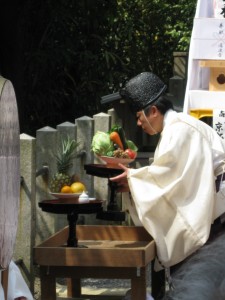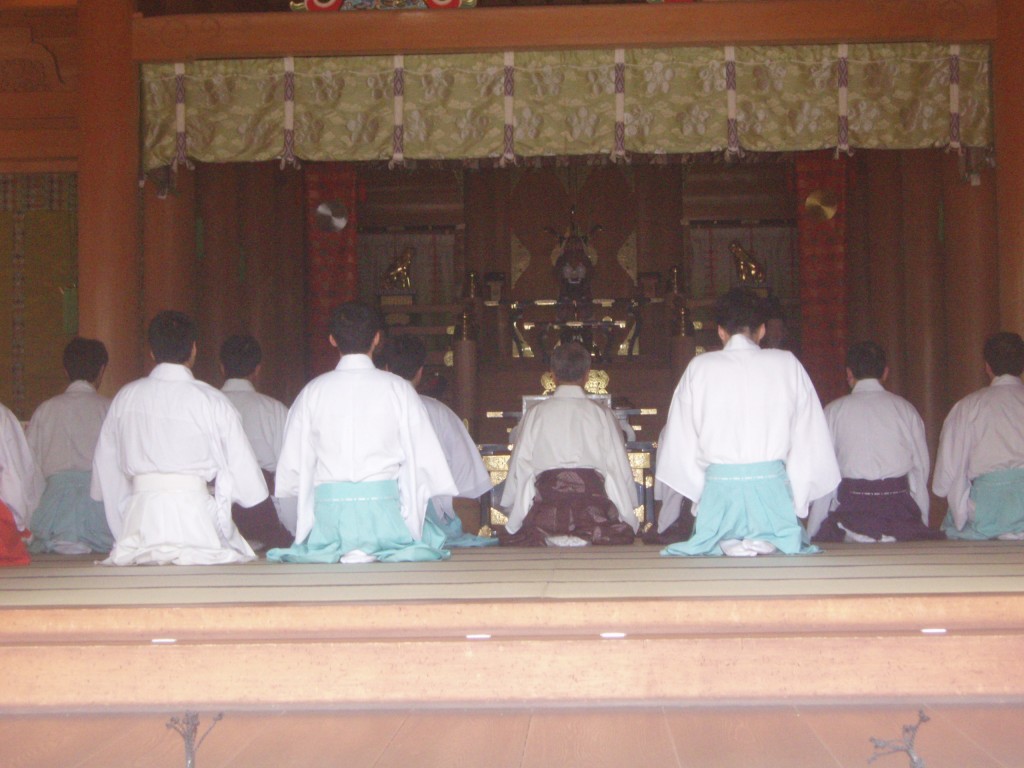Today’s Huffington Post carries a news item on preparations for the one-year anniversary of the tsunami. The number of shrines damaged in the disaster is quite startling: roughly 5% of the country’s total.
***************************************************************************************************
Shinto Priests Prepare To Hold Commemoration Ceremonies On March 11
By Debra Rubin
WASHINGTON (RNS/ENInews) Shinto priests throughout Japan are preparing to hold commemoration ceremonies on March 11 to mark the one-year anniversary of the earthquake and tsunami that killed an estimated 20,000 people.
The Association of Shinto Shrines has issued a suggested prayer to be read during the ceremonies. That prayer, according to the Rev. Masafumi Nakanishi, a Shinto priest, describes the calamity, pleads that there be no more disasters and asks that people live peacefully.
 Nakanishi performed just such a ceremony on Wednesday (Feb. 29) at Georgetown University’s Berkley Center for Religion, Peace and World Affairs during a program on the “Shinto response” to the disaster.
Nakanishi performed just such a ceremony on Wednesday (Feb. 29) at Georgetown University’s Berkley Center for Religion, Peace and World Affairs during a program on the “Shinto response” to the disaster.
Dressed in a traditional robe with tall black hat, Nakanishi bowed, clapped and chanted before an altar, performing a four-part brief ceremony that included a purification ritual as well as an offering of sacred foods: fruits and vegetables, salt and water, sake (rice wine) and seaweed.
Of the approximately 80,000 to 100,000 shrines in Japan, about 4,500 were damaged; 309 were partially or totally destroyed; and 243 may not be used because of nuclear fallout from the Daiichi nuclear plant, Nakanishi said.
Nakanishi said many of the shrines that were spared last year were built just beyond the tsunami’s reach, crediting Shinto ancestors with their safe placement.
Many of the surviving shrines were used for disaster relief efforts, with some serving as shelters following the earthquake and tsunami and others serving as collection sites for donations to assist the victims.
“I have always found the Japanese people to be very quick to help others,” Georgetown professor Kevin M. Doak said. “The Japanese have a kind of innate, intuitive empathy” that he believes “may be due to Shinto as much as to anything else.”


Leave a Reply